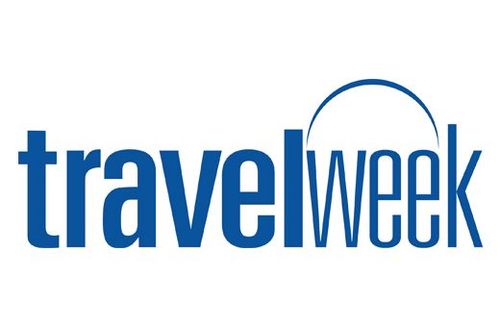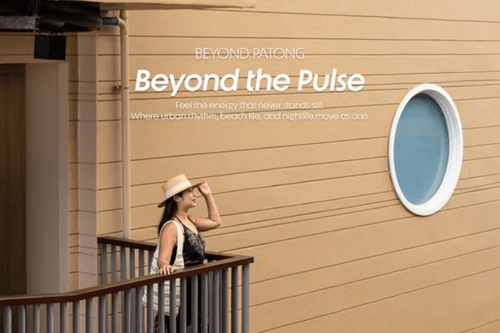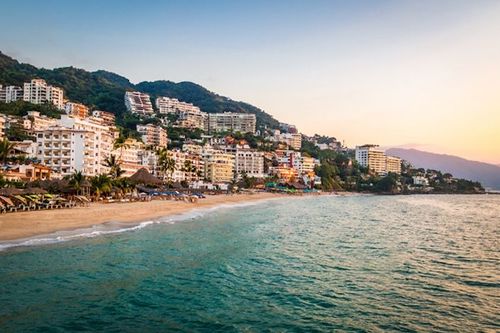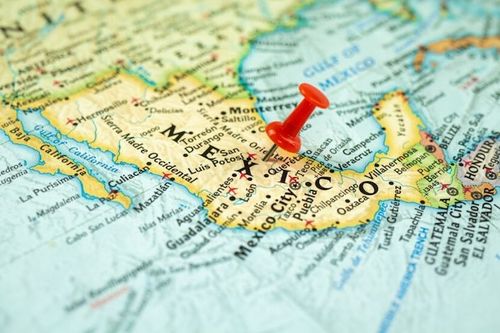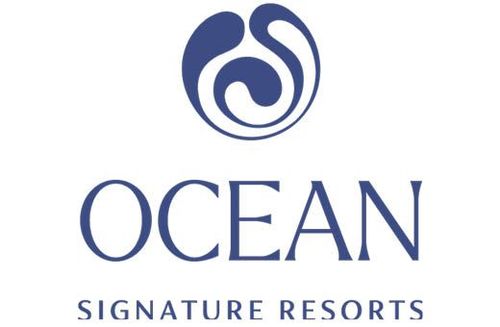Where travel agents earn, learn and save!
News / Here’s a roundup of current entry requirements for Caribbean islands
Travelweek has rounded up the top destinations in the region to provide travel agents with current entry requirements, as of April 7, 2022

The good news is, many Caribbean islands have either fully reopened to tourists or easing travel restrictions. The bad news is, it’s a lot for travel agents to keep track of.
Which destinations have dropped all COVID-19 protocols? And which ones are still requiring pre-arrival testing, quarantine and proof of vaccination? Travelweek has rounded up the top destinations in the region to provide travel agents with current entry requirements, as of April 7, 2022. Please refer to each destination’s official website for the most up-to-date information.
Anguilla
All visitors 18 years and older must be fully vaccinated to enter Anguilla. A visitor is considered fully vaccinated if they’ve received the last dose of a two-dose vaccine or a one-dose vaccine 14 days before arrival to Anguilla. Unvaccinated children under 18 years old are only permitted entry if accompanied by fully vaccinated visitors.
All fully vaccinated visitors are no longer required to apply for entry but must present evidence of full vaccination with an approved vaccine and a negative COVID-19 test result. All tests must be taken via a nasopharyngeal swab. Acceptable tests include an RT-PCR test taken within 3 days of arrival to Anguilla, a NAAT taken within 3 days of arrival, an RNA or molecular test taken 3 days of arrival, and an antigen test completed via a nasopharyngeal swab no more than 2 days (tests administered 1 days before arrival are accepted).
Visitor who have been fully vaccinated within the last 6 months, and those who’ve received a booster dose more than 14 days prior to arrival will not be tested on arrival. Vaccinated adults and minors who were fully vaccinated with a complete primary course more than 6 months prior, but have not had a booster dose are subject to testing on arrival, at their own expense.
Go to escape.ivisitanguilla.com.
Antigua & Barbuda
Arriving passengers are required to present proof of full vaccination using a World Health Organization- or Ministry of Health Wellness and the Environment-approved 2-dose COVID-19 vaccine, or a single dose vaccine for entry. Children below the age of 18 at a port of entry are exempt.
Fully vaccinated arriving passengers are not required to present a PCR or a rapid antigen negative test result for entry, including transiting passengers. Fully vaccinated passengers showing symptoms of possible infection may be required to submit to an RT PCR test upon arrival at their own expense.
Unvaccinated minors between the ages of 5-18 years old must present a negative RT PCR test or rapid antigen test of four days or fewer from the date of testing. Unvaccinated minors who are not staying at a certified resort/accommodation may be required to quarantine at home for a period of 10-14 days. Children below the age of 5 do not require a COVID-19 RT-PCR test.
Go to visitantiguabarbuda.com.
Aruba
As of March 19, 2022, all visitor are no longer required to present a COVID-19 negative test result or proof of vaccination to enter Aruba. However, all visitor are still required to complete Aruba’s Embarkation/Disembarkation Card prior to arrival and purchase Aruba Visitors Insurance.
Go to aruba.com.
The Bahamas
Fully vaccinated visitor must obtain a negative COVID-19 test (either rapid antigen or RT-PCR), taken no more than three days prior to the date of arrival to The Bahamas. Unvaccinated visitor ages 12 and older must obtain a negative COVID-19 RT-PCR test taken no more than three days prior to the date of arrival.
Children between the ages of 2-11 are required to obtain a negative COVID-19 test (either rapid antigen or RT-PCR) taken no more than three days prior to arrival. Children under 2 years old are exempt from testing requirements.
All visitors are required to apply for a Bahamas Travel Health Visa at travel.gov.bs, and opt in to the COVID-19 health insurance, which covers them for the duration of their stay. The cost of insurance is included in the visa application fee.
The Bahamas also eliminated the need for on-island COVID-19 rapid testing for all visitors, as of last month.
Go to bahamas.com.
Barbados
As of February 26, 2022, visitors can use a rapid test for entry into Barbados, administered by a healthcare provider, no more than one day prior to arrival. COVID-19 PCR tests are also accepted if taken no more than three days prior to arrival. Tests can be taken using samples administered by nasopharyngeal, oropharyngeal, nasal, anterior nares or mid-turbinate swabs. LAMP tests, self-administered or home kits, and tests using saliva samples are not permitted.
Go to visitbarbados.org.
Belize
As of March 1, 2022, fully vaccinated visitors are no longer required to present a negative COVID-19 test, but must show proof of vaccination for entry into Belize’s airport, land borders or sea ports. If proof of vaccination is not possible, or if visitors are unvaccinated, they must present proof of a negative PCR test result taken within 72 hours of arrival, or a negative antigen rapid test taken within 48 hours of arrival. Children under five years old are exempt from testing when entering Belize through airport, land or sea port.
As of Feb. 15, 2022, all tourists entering Belize must also purchase the Belize travel insurance. It’s highly recommended to purchase it prior to arrival in Belize.
Go to .travelbelize.org.
British Virgin Islands
As of Nov. 24, 2021, fully vaccinated visitors are not required to test for COVID-19 upon arrival. Visitors are, however, required to produce a negative result from an RT-PCR or approved rapid antigen SARS CoV-2 test taken no later than 48 hours before arrival. Fully vaccinated passengers who present proof of vaccination and a negative test result are also no longer required to pre-register on the Hummingbird portal. However, fully vaccinated passengers who present a negative test older than 48 hours will be required to pre-register on the portal and take a rapid antigen test on the day of arrival.
Go to bvi.gov.vg.
Cayman Islands
Fully vaccinated visitors, including children, can enter the Cayman Islands without having to quarantine if they are travelling from a country with vaccination rates that are 60% or higher for the first dose of the vaccine and where those visitors spent at least 14 days prior to the date of travel. These countries include Canada and the United States. Children 11 years and younger will take the vaccination status of their parents. Unvaccinated visitors ages 12 and older are not able to travel to the Cayman Islands at this time unless they have a close tie to the destination (ie. they own a business or property in destination or have a close family tie).
All visitors must apply to the Travel Cayman portal for an official Certificate to Travel by requesting a Travel Declaration, and be fully vaccinated with a WHO-approved vaccine. Visitors five years and older must also take a certified rapid test or a PCR test the day before departure with a negative result.
As of Feb. 18, 2022, securely verified visitors are no longer required to do on-island testing on days 2, 5 and 7. Vaccinated visitors are no longer required to test prior to travel to Cayman Brac and Little Cayman.
The Cayman Islands is currently in Phase 6 of its reopening, which means cruise ships can return, allowing fully vaccinated and symptom-free passengers to disembark, as well as unvaccinated children under the age of 11 when accompanied by a fully vaccinated adult.
Go to visitcaymanislands.com.
Costa Rica
As of April 1, 2022, visitors are no longer required to complete a Health Pass for entry. Unvaccinated visitors are also no longer required to obtain medical insurance, however, travel insurance that covers medical and lodging expenses in the event of contracting COVID-19 is still recommended.
Go to visitcostarica.com.
Cuba
Incoming visitors must show their valid passport, tourist card and COVID-19 medical insurance for entry into Cuba. No COVID-19 test of any kind, is required prior to entering Cuba, neither is quarantine. On-island testing will be required only for passengers exhibiting symptoms. If a visitors gets sick while on vacation, they will isolate the same hotel they booked, but in a different block of rooms separate from the rest of the guests, with 24/7 room service.
Visitors must log in at dviajeros.mitrans.gob.cu and fill out the health declaration form and Customs declaration form within 72 hours of their trip to Cuba. If, for any reason, they are unable to complete the forms prior to arrival, they can request paper copies onboard or at the Cuban airport.
Curaçao
Curaçao eliminated COVID-19 testing for entry on March 10, 2022, regardless of vaccination status or country of origin. Visitors are still required to complete Aruba’s standard process for entry via its entry portal at dicardcuracao.com, which include completing a digital immigration card online before departure, and filling out the digital Passenger Locator Card (PLC) form 48 hours prior to departure. Visitors must carry a printed document of the PLC with them.
Go to curacao.com.
Dominica
As of April 4, 2022, visitors are no longer required to fill and submit the pre-travel online form for entry. Also, the requirement for pre-arrival testing, and testing on arrival for vaccinated visitors at all ports of entry has been removed. However, testing on arrival for symptomatic visitors remain in effects. Visitors who test positive will be isolated in keeping with local isolation protocols.
Unvaccinated visitors must present a negative PCR test result from a nasopharyngeal swab taken within 72 hours prior to arrival, or a rapid antigen test result from a nasopharyngeal swab taken within 48 hours prior to the expected arrival time in Dominica. Quarantine for unvaccinated visitors has been removed.
Go to discoverdominica.com.
Dominican Republic
Most visitors, including those from Canada, do not need to present a negative COVID-19 test upon arrival to enter the DR. Airports and other ports of entry will perform a quick aleatory test to a percentage of passengers and all those who present symptoms upon arrival. Passengers under seven years old are exempt from this procedure. Passengers who present a vaccination card or a negative PCR or antigen test taken within 72 hours prior to arrival will also be exempt. All passengers are required to perform a temperature check. Those who present symptoms or whose test results are positive will be isolated at authorized locations.
Go to godominicanrepublic.com.
Grenada
As of April 4, 2022, Grenada has dropped all COVID-19 restrictions for entry, for all visitors, regardless of vaccination status. This means that both vaccinated and unvaccinated visitors arriving into Grenada are not required to take a COVID-19 test either prior to or upon arrival, nor are they required to quarantine upon arrival. They also do not need to fill out a Health Declaration Form prior to or upon arrival.
Go to puregrenada.com.
Jamaica
All visitors need to enter Jamaica is a negative antigen or PCR test result from an accredited lab conducted within three days of travel, regardless of vaccination status. Children under the age of 12 are exempt. All visitors are required to submit an Immigration/Customs C5 card, which can be done online at enterjamaica.com, or in flight in paper form.
Go to visitjamaica.com.
Mexico
There are no travel restrictions to visit the Mexican Caribbean, including self-quarantine. citizens need only to present a valid passport and complete the correct entry forms (Migratory Form for Foreign Tourists, Transmigrants, Business Visitors or Councillor Visitors) to enter Mexico. Forms are available at travel agencies, airline offices and at all entry points into Mexico.
Go to rivieranayarit.com and mexicancaribbean.travel.
Nicaragua
To enter Nicaragua, visitors must present a negative COVID-19 PCR/Serology test at the Augusto C. Sandino International Airport taken a maximum of 72 hours prior to entry. Results should be sent electronically to the airline prior to the date of travel. Those who present respiratory symptoms or a fever upon arrival will not be permitted entry into the country. All visitors must fill out an online form or download it and complete it, and submit it to solicitudes@migob.gob.ni a minimum seven days prior to arrival in Nicaragua.
To view the steps required to schedule and view results of a COVID-19 test in Nicaragua, go to visitnicaragua.us.
Panama
Visitors from all countries are welcome to visit Panama and are not required to present a negative COVID-19 test for entry, as long as they can provide physical or digital proof of at least two doses, or complete a vaccination scheme endorsed by the WHO, MA and FDA, equal to or greater than 14 days after the last dose.
Non-vaccinated or partially vaccinated visitors are required to present a negative COVID-19 PCR or antigen test taken no more than 72 hours prior to their arrival in Panama. If a test is not possible within that time frame, a COVID-19 rapid test will be required at the airport at the visitors’ expense of US$50. If the results are positive, the visitors will be placed under a mandatory 14-day quarantine in a hotel, at the visitors’ expense. Children 17 years of age and under are not required to present a negative COVID-19 test or vaccination record if accompanied by an adult.
All visitors are required to present their completed Electronic Health Affidavit, in physical or digital form, to their airline or carrier before boarding to Panama.
Go to tourismpanama.com.
Puerto Rico
All visitors arriving on international flights must present a negative COVID-19 test (either antigen or PCR) taken within 1 day. Prior to departure, along with proof of vaccination. Visitors who must test positive while on the island must quarantine and cover their own medical expenses/possible extended stay.
For ships to be permitted entry to Puerto Rico, all guests 12 years of age or older must be fully vaccinated with an FDA- or WHO-approved vaccine. Unvaccinated passengers cannot disembark in Puerto Rico, except for children under 12 years of age.
Go to discoverpuertorico.com.
Saint Lucia
As of April 2, 2022, Saint Lucia removed all pre-entry COVID-19 testing requirements for fully vaccinated visitors. As of April 5, 2022, all visitors are no longer required to pre-register online prior to arrival in Saint Lucia at stlucia.org.
Fully vaccinated visitors must still provide a valid vaccination record upon check-on, boarding and entry to Saint Lucia. To qualify as fully vaccinated, visitors must have had the last dose of a two-dose COVID-19 vaccine, or a one-dose vaccine, at least two weeks before travel.
Unvaccinated visitors five years and older must have a valid negative standard COVID-19 PCR test five days prior to arrival. An unsupervised self-swab antigen or PCR test is not accepted.
Go to stlucia.org for full protocols.
St. Kitts & Nevis
Currently, only fully vaccinated visitors and unvaccinated children under 18 years old travelling with fully vaccinated parents or guardians are allowed entry into St. Kitts & Nevis. A visitors is considered fully vaccinated 14 days after their second dose of a two-dose vaccine series, or two weeks after receiving a single-dose vaccine. Mixed vaccine doses of two-dose regimens of AstraZeneca/Oxford, Bharat Biotech-Covaxin, Covishield, Pfizer/BioNTech, Moderna, Sinovac and Sinopharm are accepted.
As of April 1, 2022, all visitors must submit a rapid antigen negative test (nasopharyngeal or oropharyngeal) result taken one day prior to arrival, or a COVID-19 RT-PCR or NAAT negative test result taken within three days of arrival, along with the required embarkation form and all other supporting documentation. An embarkation form is required regardless of age. Fully vaccinated visitors are required to submit a copy of their official Vaccination Record card, including dates when doses were administered, to knatravelform.kn. All incoming visitors must have hard copies of their negative RT-PCR, NAAT or rapid antigen test results and Vaccination Record card, and present their travel approval letter via their mobile device or printed format to the required airline and health officials.
Go to stkittstourism.kn.
St. Martin
Canadians travelling to St. Martin and arriving at Sint Maarten Juliana Airport (SXM) must fill out the Electronic Health Authorization System (EHAS) and obtain mandatory health insurance. Fully vaccinated visitors (with or without a booster shot), as well as children under 5 years old are exempt from COVID-19 testing. Unvaccinated visitors older than 5 years old must present a negative PCR test result taken less than 48 hours before departure (antigen tests are not accepted).
Visitors who’ve recovered from COVID-19 within 9 months before departure must upload one of the following acceptable proof of recovery: a government/public health authority issued proof of recovery (digital Covid recovery certificate or letter); a lab-issued positive COVID-19 PCR test result indicating a Ct value of 35 or higher; or a signed and stamped COVID-19 recovery letter from a physician accompanied by a positive COVID-19 PCR test result.
Go to st-martin.org.
St. Vincent and the Grenadines
As of March 3, 2022, fully vaccinated visitors from Very High-Risk, High-Risk, Medium-Risk and Low-Risk countries, including Canada, must arrive with a negative RT-PCR COVID-19 test, or a negative SARS-CoV-2 rapid antigen test result. PCR tests must be done no more than 3 days before arrival, while rapid antigen tests must be done no more than 24 hours before arrival. Fully vaccinated visitors will not be retested for COVID-19 on arrival unless so determined by the Port Health Officer, and will not have to quarantine for 48 hours in a Tourism Authority/MOHWE-approved quarantine hotel at their own cost, unless so determined by the Port Health Officer.
Unvaccinated visitors from High-Risk Countries, including Canada, must arrive with a negative result of a COVID-19 (RT-PCR) test done no more than 3 days before arrival, and may be retested for COVID-19 on arrival. They must also quarantine for 10 days in an approved Transition/Quarantine Hotel at their own cost, and must arrive with proof of the fully paid reservation. They must also transfer to the Transition Hotel in an approved taxi or vessel at their own expense, and must be retested between day 7-10 of quarantine.
Go to health.gov.vc.
Trinidad & Tobago
Trinidad and Tobago are open to fully vaccinated non-nationals who’ve received a WHO-approved vaccine for COVID-19. Mixed doses of WHO-approved vaccines are allowed. Visitors, including children, must obtain a TTravel Pass prior to arrival. Passengers are also required to provide evidence of a negative PCR or antigen test no older than 3 days, full vaccination in accordance with WHO standards using WHO-approved vaccines, and fully-paid, state-supervised quarantine at an approved hotel facility where applicable, to the airline agents before boarding any flight to Trinidad and Tobago, and also upon arrival.
Non-nationals who are not fully vaccinated are not allowed entry to Trinidad and Tobago at this time.
Go to visittrinidad.tt.
U.S. Virgin Islands
As of March 7, 2022, all international visitors ages 2 and older entering the U.S. Virgin Islands by air or sea are required to use the USVI Travel Screening Portal and get clearance to travel to the island.
International visitors must submit a negative antigen or NAAT (ie. RT-PCR) test result. Test requirements depend on vaccination, mode of travel and age. Non-U.S. citizens travelling by air must take a test within 24 hours of travel, and all visitors must be fully vaccinated and provide proof of vaccination status. Visitors ages 2-17 are exempt from the vaccine requirement.
Go to visitusvi.com.



